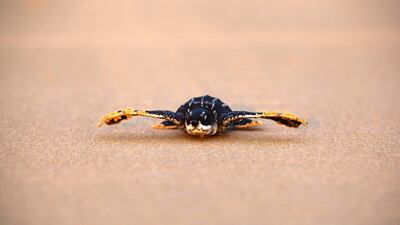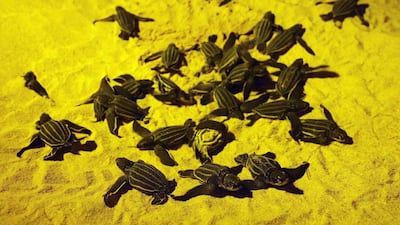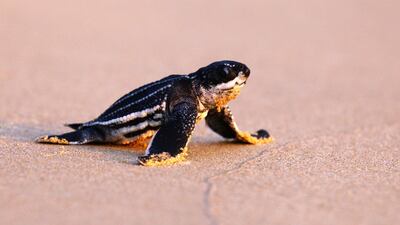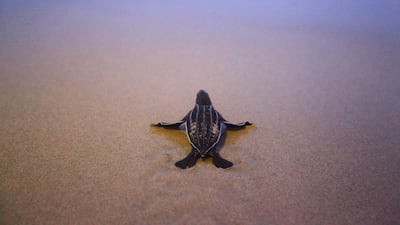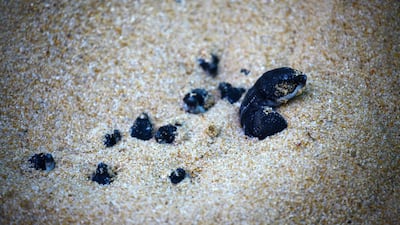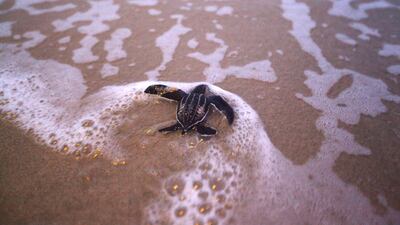Leatherback sea turtles have built the largest number of nests in two decades on Thailand’s beaches, which have been cleared of people by the coronavirus outbreak.
Coastal areas normally teeming with tourists around Phuket and Phang Nga have seen a return of the shy sea creatures in recent months. The 11 turtle nests found by authorities since last November were the highest number in 20 years, said Kongkiat Kittiwatanawong, the director of the Phuket Marine Biological Center.
"This is a very good sign for us because many areas for spawning have been destroyed by humans," he told Reuters. No such nests had been found for the previous five years.
“If we compare to the year before, we didn’t have this many spawn, because turtles have a high risk of getting killed by fishing gear and humans disturbing the beach.”
Usually, the nests are difficult to locate along the busy Andaman Sea coast, which is one of the country's most popular destinations for travellers. High tides and nest thieves, who dig up and steal the eggs, also pose a threat to the species, which are considered endangered in Thailand and listed as a “vulnerable species” by the International Union for Conservation of Nature.
Sea waters have become visibly cleaner and corals are growing back following the drop in visitors since Thailand reported its first case of the virus in January, Sopon Thongdee, Director-General of the Department of Marine and Coastal Resources said on Friday.
The turtles began laying their eggs last November, with nests under close surveillance to protect them from disturbance, local media reported. In March, staff at a national park in the southern province of Phanga Nga found 84 hatchlings after monitoring eggs for two months.
A single Leatherback sea turtle nest contains 60-120 eggs, which take about two months to hatch. Once hatched, the tiny turtles make their journey from the nest to the sea, a process happening in record numbers due to the coronavirus restrictions.
A nationwide lockdown has closed beaches and public parks, providing an opportunity for animals to roam freely in areas normally filled with people.
Numerous sightings of rare marine creatures including dugongs, pink dolphins and whale sharks have been reported in Thailand, while worldwide, there have been pictures of deer in London suburbs, gazelles crossing motorways in the UAE, wild boars in the Israeli city of Haifa and a bear venturing into a Turkish tram station.
In the UAE, there are still a few months to go before turtle hatching season in July. Last year, 78 baby Hawksbill turtles survived from six nests protected by volunteers on Saadiyat Island in Abu Dhabi. Hawksbill turtles are listed as critically endangered under the International Union for Conservation of Nature’s (IUCN) Red List of Threatened species.
The female adults turtles return to Abu Dhabi’s shores between March and June to lay their eggs.
